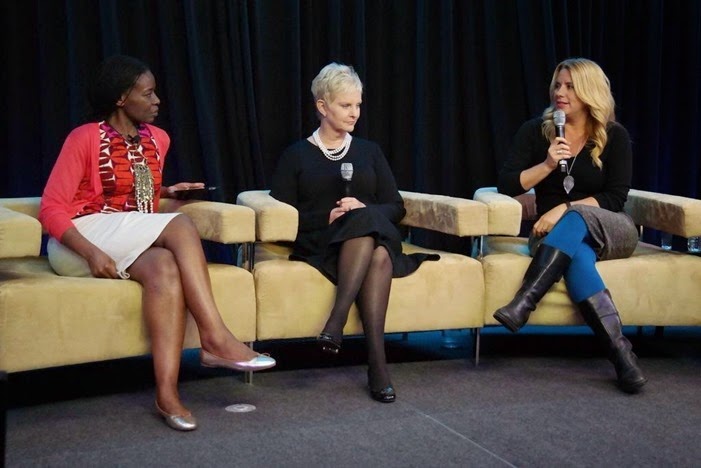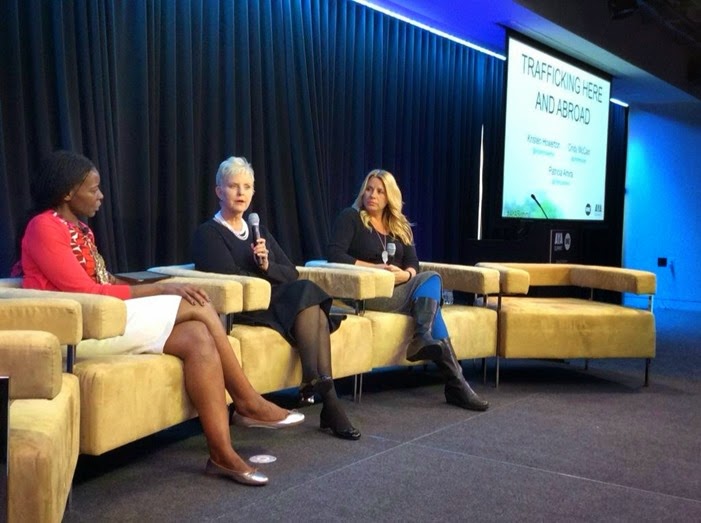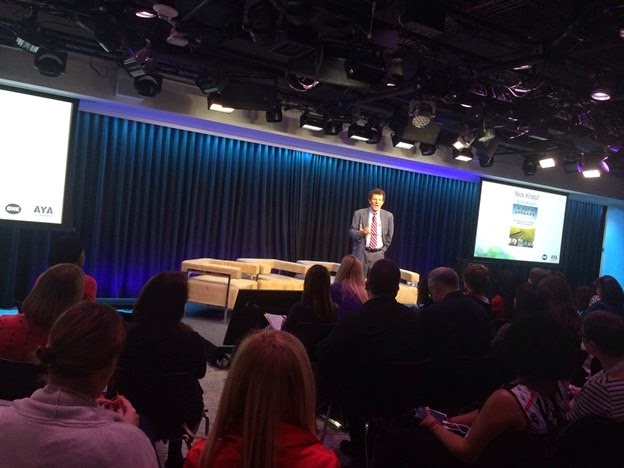Last week I had the chance to travel to Washington, DC to attend the ONE campaign’s inaugural Aya Summit, an event dedicated to discussing how to advocate for women and girls around the world. If you aren’t familiar with the ONE campaign, they are a global advocacy group with the mission of ending extreme poverty and preventable disease.  I had the opportunity to lobby congress on behalf of the ONE campaign last year, and have also been involved as a ONE mom ambassador for a while, and I cannot express how impressed I am with the organization. They recently launched ONE Girls and Women, which addresses issues specific to women and girls and empowers the general public to advocate on their behalf. If you haven’t yet, I highly recommend that you sign up for their newsletter. It’s such an easy way to stay abreast of issues and they provide really easy action steps for speaking up, sharing on social media, and petitioning government officials. While at the summit, I spoke on a panel about child trafficking with Cindy McCain and Patricia Amira. It was a really great conversation. One of the things I love about the ONE campaign is their commitment to bi-partisan partnerships in advocacy work – believing that humanitarian aid should go beyond political affiliation. While Cindy and I might come from different places politically, we were absolutely in sync on these issues and I loved getting to know her and hearing her experience. I got to share about the work the Exodus Road is doing, as well as some ideas for how everyday people can advocate for victims. (In a nutshell: it’s time we stop being silent on this issue because it makes us uncomfortable. We need to raise our voices for the women who don’t have a voice.)
I had the opportunity to lobby congress on behalf of the ONE campaign last year, and have also been involved as a ONE mom ambassador for a while, and I cannot express how impressed I am with the organization. They recently launched ONE Girls and Women, which addresses issues specific to women and girls and empowers the general public to advocate on their behalf. If you haven’t yet, I highly recommend that you sign up for their newsletter. It’s such an easy way to stay abreast of issues and they provide really easy action steps for speaking up, sharing on social media, and petitioning government officials. While at the summit, I spoke on a panel about child trafficking with Cindy McCain and Patricia Amira. It was a really great conversation. One of the things I love about the ONE campaign is their commitment to bi-partisan partnerships in advocacy work – believing that humanitarian aid should go beyond political affiliation. While Cindy and I might come from different places politically, we were absolutely in sync on these issues and I loved getting to know her and hearing her experience. I got to share about the work the Exodus Road is doing, as well as some ideas for how everyday people can advocate for victims. (In a nutshell: it’s time we stop being silent on this issue because it makes us uncomfortable. We need to raise our voices for the women who don’t have a voice.) 
 This idea of advocating for the voiceless emerged as a theme for the day. We also heard from Nick Kristoff, who wrote the book Half the Sky: Turning Oppression into Opportunity for Women Worldwide. His talk was really inspiring, as he has done so much research on best practice in advocacy and humanitarian aid.
This idea of advocating for the voiceless emerged as a theme for the day. We also heard from Nick Kristoff, who wrote the book Half the Sky: Turning Oppression into Opportunity for Women Worldwide. His talk was really inspiring, as he has done so much research on best practice in advocacy and humanitarian aid.  Mr. Kristof really emphasized the power of the human story, and the importance of amplifying the stories of the oppressed. A few of my favorite quotes from him:
Mr. Kristof really emphasized the power of the human story, and the importance of amplifying the stories of the oppressed. A few of my favorite quotes from him:
“What connects people to a cause: individual stories. People tune out when the focus is on problems.” @NickKristof #AYASummit— Kristen Howerton (@kristenhowerton) October 23, 2014
“I am not optimistic about the news media’s ability to tell the stories of impoverish people. You need to pick up the mic.” @NickKristof— Kristen Howerton (@kristenhowerton) October 23, 2014
We need to pick up the mic! I couldn’t agree more. His talk was such an affirmation for me to continue to write about difficult subjects. We also heard from a young poet named Marquesha Babers, who is part of an organization called Get Lit that immerses teens into the world of literature and poetry. Marquesha is currently homeless, and her life story, as told through poetry, was so moving. Out of the summit, a scholarship fund was set up to help Marquesha reach her educational goals. The final button on this theme of human story was a surprise for everyone in the room. We had been hearing from so many amazing people – survivors and advocates and humanitarians. And at the end of the day on Thursday, we were told there was one more surprise guest. I will be honest . . . at first I assumed it would be Bono. He spearheaded the ONE campaign and I thought maybe he would come in and say a few words, and that would be nice. But what happened next was so much more powerful than hearing from a celebrity. Instead, we were told to turn our cameras off and stop tweeting. And a young girl entered the room. She seemed shy and nervous, and it was revealed that she was one of the 200+ girls who had been kidnapped by Boko Haram in Nigeria. Her name is Saa and she escaped her captors the night of the kidnapping by jumping off of the convoy truck. She recounted the night she and her friends were captured from their school the night before they were to take exams . . . the confusion, the fear, the chaos, the realization that these men were a part of Boko Haram. She recalled watching her school burn to the ground, and being told to get into a truck or die. She recalled telling a friend that she would rather die, and making a plan to escape. She told of the moment that she jumped from the truck with a friend, who was injured too badly to move. She told us of the harrowing journey to find help for her friend, and the desperate plea for help she made to a shepherd she encountered. She also talked about her grief over her friends who are still missing. I knew about this abduction. Every person at the summit knew about this abduction. But hearing the account first-hand from one of the girls – it was like none of us even moved as she spoke. We were riveted, and felt such a renewed connection to this story, and this community, and this injustice. THIS is the power of story . . . of hearing another’s experience. It’s the reason I started the What I Want You to Know series, and it’s the reason I’m proud to be a part of ONE Girls and Women, as they help amplify the stories of women and children. If you feel moved to be an advocate, please consider signing up for their mobile action team, and following them online here: ![]()
![]()
![]() One of our goals during the summit was to reach the White House to ask for a renewal of funds for Gavi, the global vaccine alliance, which you can read more about, here. These funds will save millions of children’s lives from preventable diseases. Please check out the campaign here!
One of our goals during the summit was to reach the White House to ask for a renewal of funds for Gavi, the global vaccine alliance, which you can read more about, here. These funds will save millions of children’s lives from preventable diseases. Please check out the campaign here!
